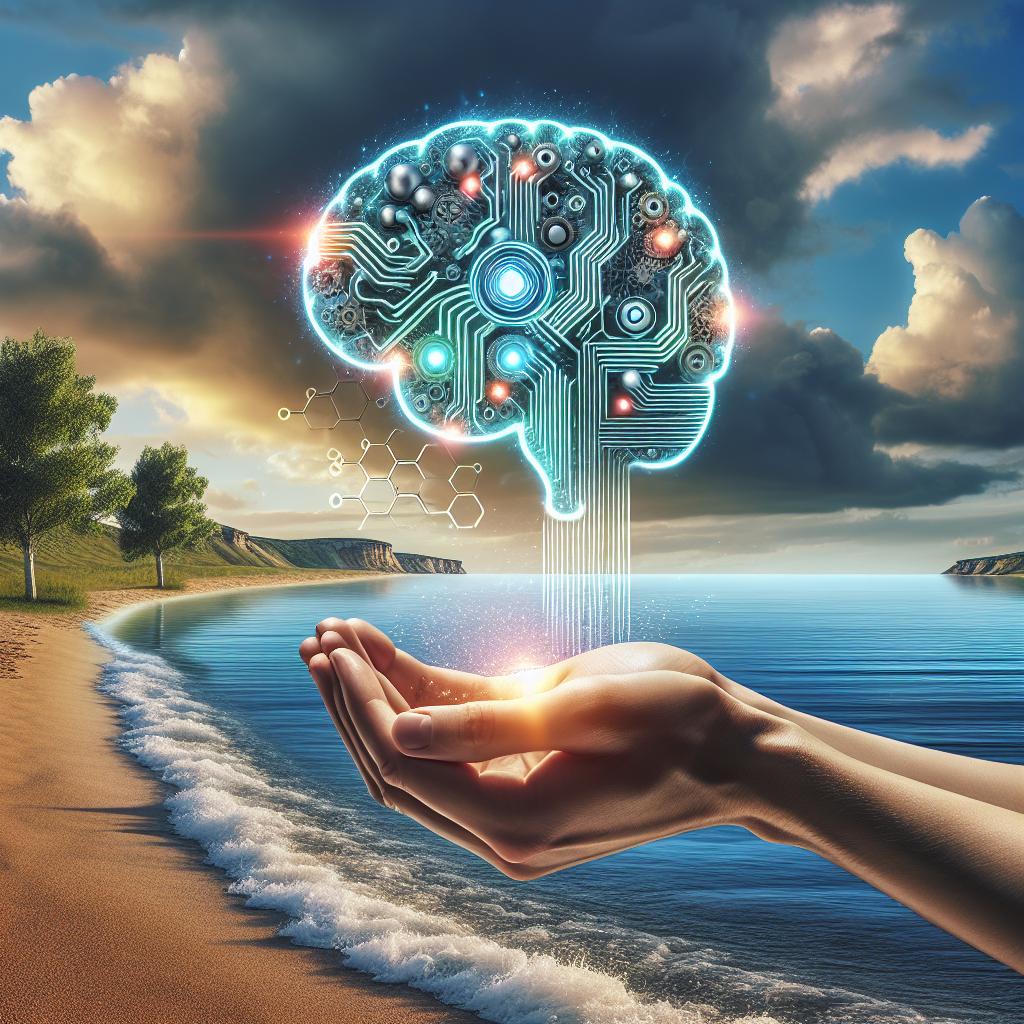Artificial Intelligence (AI) is revolutionizing the field of mental health care by providing innovative solutions to improve diagnosis, treatment, and overall patient care. With the growing prevalence of mental health disorders worldwide, there is a pressing need for more efficient and effective ways to address these issues. AI offers a promising avenue for achieving this goal by leveraging advanced technology to enhance mental health care delivery.
AI has the potential to transform mental health care in several key ways:
1. Early detection and diagnosis:
One of the major challenges in mental health care is the timely detection and accurate diagnosis of various mental health disorders. AI-powered tools such as machine learning algorithms can analyze large amounts of data, including patient history, symptoms, and genetic information, to identify patterns and predict potential mental health issues. These tools can help clinicians to make more accurate diagnoses and intervene early to prevent the progression of mental health disorders.
2. Personalized treatment plans:
AI can also be used to develop personalized treatment plans for individuals with mental health disorders. By analyzing patient data and monitoring their progress over time, AI algorithms can tailor treatment strategies to the specific needs and preferences of each patient. This personalized approach can lead to better outcomes and improve patient engagement in their treatment.
3. Remote monitoring and support:
AI-powered tools can enable remote monitoring of patients with mental health disorders, allowing clinicians to track their progress and provide timely interventions when needed. For example, chatbots and virtual assistants can offer support and guidance to patients outside of traditional therapy sessions, helping to improve adherence to treatment plans and reduce the risk of relapse.
4. Predictive analytics:
AI can also be used to predict the likelihood of future mental health issues based on a variety of factors, such as genetics, lifestyle, and environmental influences. By analyzing these predictive factors, clinicians can develop preventive strategies to reduce the risk of mental health disorders and promote overall well-being.
5. Enhancing therapy and counseling:
AI-powered tools can augment the work of therapists and counselors by providing real-time insights and recommendations during therapy sessions. For example, sentiment analysis algorithms can analyze the tone and emotion of a patient’s speech to help clinicians understand their mental state and tailor their interventions accordingly. This can lead to more effective therapeutic interactions and better outcomes for patients.
6. Improving access to care:
AI can help to bridge the gap in mental health care access by providing scalable solutions that can reach a larger population of individuals in need. Virtual therapy platforms, telehealth services, and mobile apps powered by AI can offer convenient and affordable options for individuals to receive mental health support anytime, anywhere.
Despite the many benefits of using AI in mental health care, there are also challenges and concerns that need to be addressed. Some of the common questions and FAQs about using AI to improve mental health care include:
1. How accurate are AI algorithms in diagnosing mental health disorders?
AI algorithms have shown promising results in diagnosing mental health disorders, with some studies reporting high levels of accuracy and reliability. However, it is important to note that AI tools should be used as aids to clinical decision-making rather than as standalone diagnostic tools. Clinicians should always verify the results of AI algorithms and use their expertise to make informed decisions about patient care.
2. How can AI ensure patient privacy and data security?
Privacy and data security are critical considerations when using AI in mental health care. To protect patient data, AI systems should comply with relevant privacy regulations, such as HIPAA in the United States. Additionally, AI developers should implement robust security measures, such as encryption and access controls, to safeguard sensitive patient information.
3. What are the limitations of AI in mental health care?
Despite its potential, AI has limitations in the field of mental health care. For example, AI algorithms may be biased or limited in their ability to understand complex human emotions and behaviors. Additionally, AI tools may lack the empathy and interpersonal skills that are essential for building trust and rapport with patients. Clinicians should be aware of these limitations and use AI as a complement to their clinical expertise.
4. How can AI tools be integrated into existing mental health care systems?
Integrating AI tools into existing mental health care systems requires collaboration between AI developers, clinicians, and healthcare providers. Clinicians should be trained on how to use AI tools effectively and incorporate them into their practice. Additionally, healthcare organizations should invest in infrastructure and resources to support the implementation of AI in mental health care.
In conclusion, AI has the potential to revolutionize mental health care by providing innovative solutions to improve diagnosis, treatment, and overall patient care. By leveraging advanced technology, AI can enhance early detection and diagnosis, personalize treatment plans, enable remote monitoring and support, predict future mental health issues, enhance therapy and counseling, and improve access to care. However, there are also challenges and concerns that need to be addressed, such as the accuracy of AI algorithms, patient privacy and data security, limitations of AI, and integration into existing mental health care systems. By addressing these issues and working collaboratively, AI can help to transform mental health care and improve outcomes for individuals with mental health disorders.

